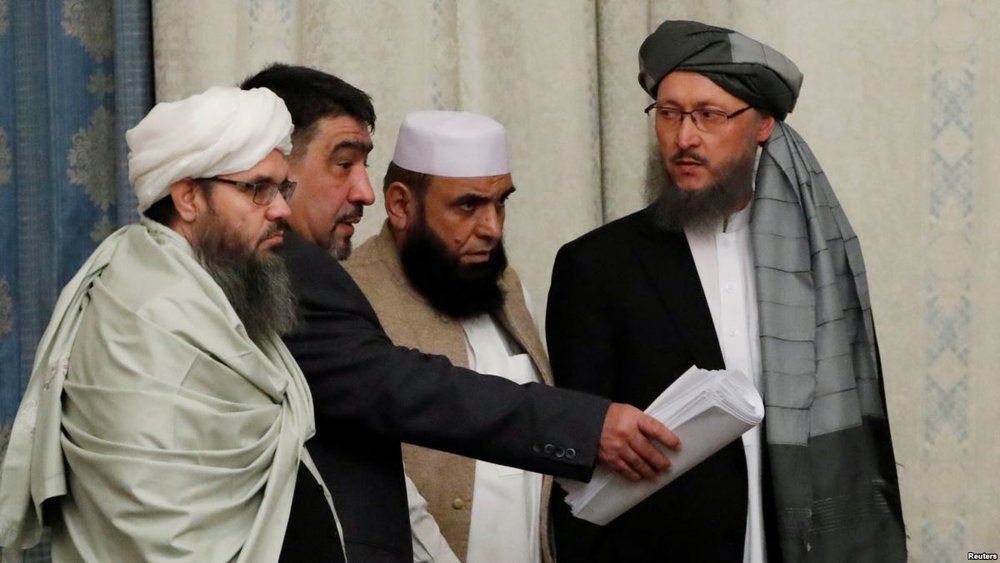By Syed Zafar Mehdi

TEHRAN - Putting speculation to rest, it was finally confirmed this week that the government of Iran held talks with a Taliban delegation on “post-occupation situation” in Afghanistan.
The announcement assumes significance for several reasons. The security situation in the war-ravaged country has alarmingly deteriorated in recent years, and the foreign powers led by U.S. have finally admitted defeat after 17 years.
Today, as the war imposed by the U.S. stretches into its 18th year, Taliban controls or contests around half of the country and launches complex attacks on a daily basis.
Despite unconditional peace offers from the government in Kabul led by President Ashraf Ghani, the insurgent group has refused to talk to them. However, it has been open for talks with important regional powers.
Taliban has maintained that the first condition for ending the war in Afghanistan is the withdrawal of U.S.-led coalition forces from the country. Although Donald Trump announced the partial withdrawal of U.S. forces recently, around 7,000 U.S. troops are still stationed there.
In recent months, after Trump appointed former diplomat Zalmay Khalilzad as a ‘peace envoy’, hectic negotiations have been reported between the Taliban and the U.S. in Qatar and UAE. However, the ‘talks’ have failed to produce a breakthrough.
Moscow also hosted a historic summit on Afghanistan last month which saw participation of representatives of many countries, besides a high-profile Taliban delegation. Countries like India, which had maintained ambiguous stand on ‘peace talks’ with the Taliban, also joined the table.
China has also shown active involvement in the war-ravaged country recently. Senior officials of China, Pakistan and Afghanistan have held two trilateral talks on Afghan peace process in recent months.
Pakistan, which is an important regional player and enjoys leverage over the insurgent group, has pledged its support to the peace process. Pakistan’s foreign minister Shah Mehmood Qureshi has made many trips to Kabul recently, and participated in talks hosted by Moscow and Doha.
Iran, an important regional player, has always been the supporter of Afghan peace process. Although there had been reports of talks between Tehran and Taliban in the past but it was not confirmed.
Last week’s discussions between Iran’s deputy foreign minister Abbas Araqchi and the group were reportedly coordinated with the government of Afghanistan and aimed at finding a solution to the 17-year protracted war.
Last week’s discussions between Iran’s deputy foreign minister Abbas Araqchi and the group were reportedly coordinated with the government of Afghanistan and aimed at finding a solution to the 17-year protracted war.
Foreign Ministry spokesman Bahram Qassemi confirmed that the meeting took place. “Since the Taliban control more than 50 percent of Afghanistan, and given the insecurity, instability and other issues that the country is dealing with, they were interested in talks with Iran,” he told reporters on Monday.
Qassemi said Iran shares long border with Afghanistan and has always sought a constructive role to maintain peace in the region.
The meeting came days after it was confirmed that Ali Shamkhani, secretary of Iran’s Supreme National Security Council (NSC), had traveled to Afghanistan for initial round of talks.
“The Islamic Republic has always been one of the primary pillars of stability in the region and cooperation between the two countries will certainly help in fixing Afghanistan's security issues of today,” Shamkhani was quoted saying, adding that the Afghan government was kept in loop.
Taliban also confirmed that the meeting took place and discussions pertained to “the post-occupation situation, restoration of peace and security in Afghanistan and the region”.
“The delegation visited Tehran to share Taliban’s views on ‘post-occupation’ scenario and establishment of peace and security in Afghanistan and the region with Iranian officials,” Zabihullah Mujahid, spokesman for Taliban, said in a statement.
The talks between Taliban and Iran, according to observers, must be seen in the context of growing insurgency in the region that puts the security of all regional countries, including Iran, at greater risk.
“Negotiations between Iran and a Taliban delegation are significant given that Iran is an important regional power and the neighbor of Afghanistan,” said Ali Shamsi, Islamabad-based strategic affairs analyst. “Iran has high stakes in peaceful Afghanistan especially with the emergence of ISIS and its affiliates in the war-torn country that can easily infiltrate into Iran through porous borders.”
“The talks between Tehran and Iran are a step in right direction,” says Dawood Hotak, a Kabul-based analyst. “Many world powers have been talking to the group without any results, and I believe Iran can be a catalyst of peace in the war-torn country.”
The reports about Taliban-Iran talks have raised eyebrows in Washington. Iran’s active role in Afghanistan means U.S. will be under more pressure to pull out from the country, believe experts.
Meanwhile, deputy foreign minister Abbas Araghchi is expected to travel to Afghanistan in next two weeks to hold deliberations with the Afghan government on the way forward.

No comments:
Post a Comment